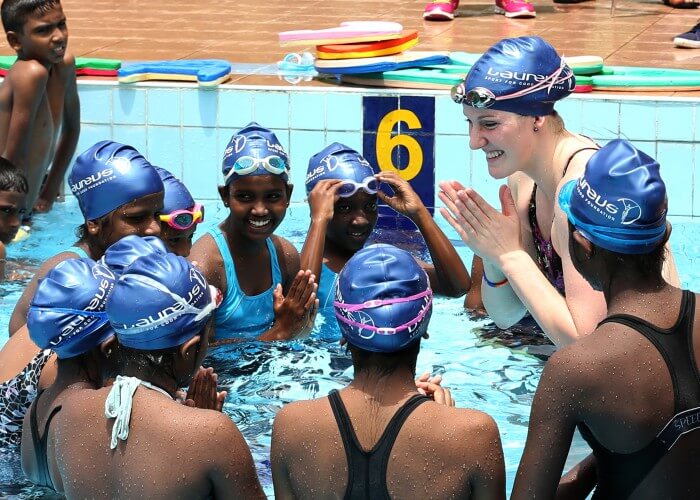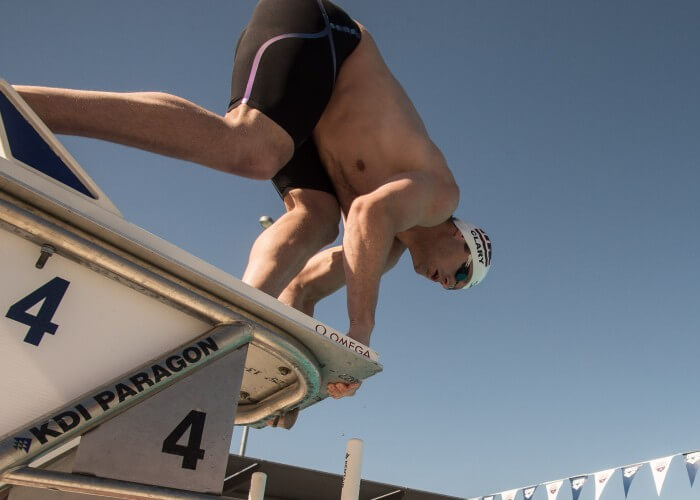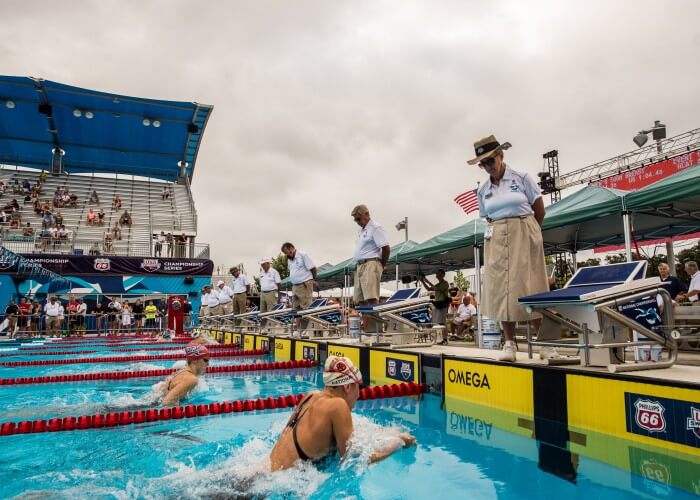3 Benefits of Napping for Swimmers

by Courtney Bartholomew, Swimming World Intern
Naps may be one of my favorite things– outside of food, of course. Napping used to be an activity I would only do after a long Saturday morning practice, however, since beginning college, they have become a large part of my daily routine.
Ever since I started swimming, I have heard my parents and coaches discuss the benefits of napping for recovery and repair. However, I chose not to listen to this advice and missed out on many of the benefits of napping.
With naps now being incorporated into my daily routine, I have noticed changes in my swimming and daily activities. Personally, I am able to concentrate better in my classes and in the pool. I am able to swim at a higher intensity. Not only are naps a great way to improve concentration, but according to Dan McCarthy, Sports Performance Consultant for USA Swimming, “sleep is the time when the body recovers from the stresses loaded upon it, and the repair of muscle and connective tissue begins. Naps are an excellent tool for athletes in training and on game day as well.”
While naps should never take the place of getting the recommended amount of sleep at night, they have many advantages to enhance performance in the pool and in the classroom. Here are some benefits to incorporating naps into your daily routine:
1. Be More Alert and Awake

Photo Courtesy: Buddhika Weerasinghe
After a difficult morning practice I sometimes struggle to make it through breakfast without almost dozing off at the breakfast table. During my first year of college I decided that 9 a.m. classes would not be too early (high school classes had started at 8 a.m. for me). I did not take into account that college morning practices would be much more intense than high school. My second day of classes, I was awakened by a teammate after dozing off during the math lecture. After my first semester, I vowed to never again take a 9 a.m. and to try to nap after morning practices.
Not only was I vowing to do this to avoid the embarrassment of falling asleep in class, but according to the Gatorade Sports Science Institute “naps can markedly reduce sleepiness and can be beneficial when learning skills, strategy, or tactics in sleep deprived individuals.” This is because sleep allows for the brain to re-set and refocus on the task at hand. Whether it is in class or in the pool, a nap after a morning workout or during the day will help the brain to be more alert.
2. Improve Performance and Reaction Time

Photo Courtesy: Peter H. Bick
Winter training trips are upon us. In the past few weeks I have gone from tapering, to ramping back up in yardage. To say it has been difficult would be an understatement. While it has not been easy to go from mostly recovery practices to intense training, naps have been my lifesaver. I noticed during two-a-days that if I did not have time for a nap, I would feel as though I were in a fog throughout the practice. It would be hard for me to leave on the correct interval and respond quickly during starts on race sets. On the days I was able to get a 30 to 40 minute nap in though, I was able to react faster.
In most cases, the problem is not a muscular one, but a physiological affect. The brain does not get enough time to rest, which in turn causes it to react slowly to stimuli. When sleep deprived, the brain is essentially too tired to effectively process the information it receives. The information eventually gets through, but the processing takes notably longer than it would for a person who is well rested.
3. Improve Memory Consolidation

Photo Courtesy: Peter H. Bick
My coaching staff at the University of Virginia employs the use of drills to correct technique and create good swimming habits. We typically work on drills in our morning stroke groups, which helps me to have something to concentrate on for the morning and afternoon practice. However, if I forget to take a nap or run out of time between classes, I struggle to concentrate on the details and my body is more fatigued.
According to Medical Daily, the brain consolidates motor learning during sleep, improving muscle memory. This is because sleep helps the brain to edit its memory, looking for important patterns and extracting overarching rules which could be described as habitual, and integrating this with existing memory. By taking a nap or sleeping well at night, swimmers can help the brain to learn patterns, such as good swimming habits, and integrate them into normal routine. This process done during sleep is helpful to swimmers because it allows for the skills learned during practice to become habit.
Next time your body and brain feel fatigued, remember what napping can do for you in the pool and in the classroom. You never know, you might become a professional napper!




Kyle Grissom – this naps for you !
…naps work for me. Up and drinking coffee @.0300, Masters Swimming by 0520, breakfast by 0800, on a daily adventure from 0900 til a late lunch…nice relaxing read until I doze off on my nap. Pick up grandson from school @. 0320…spin with him until dinner, then back to the recliner (retirement is exhausting)